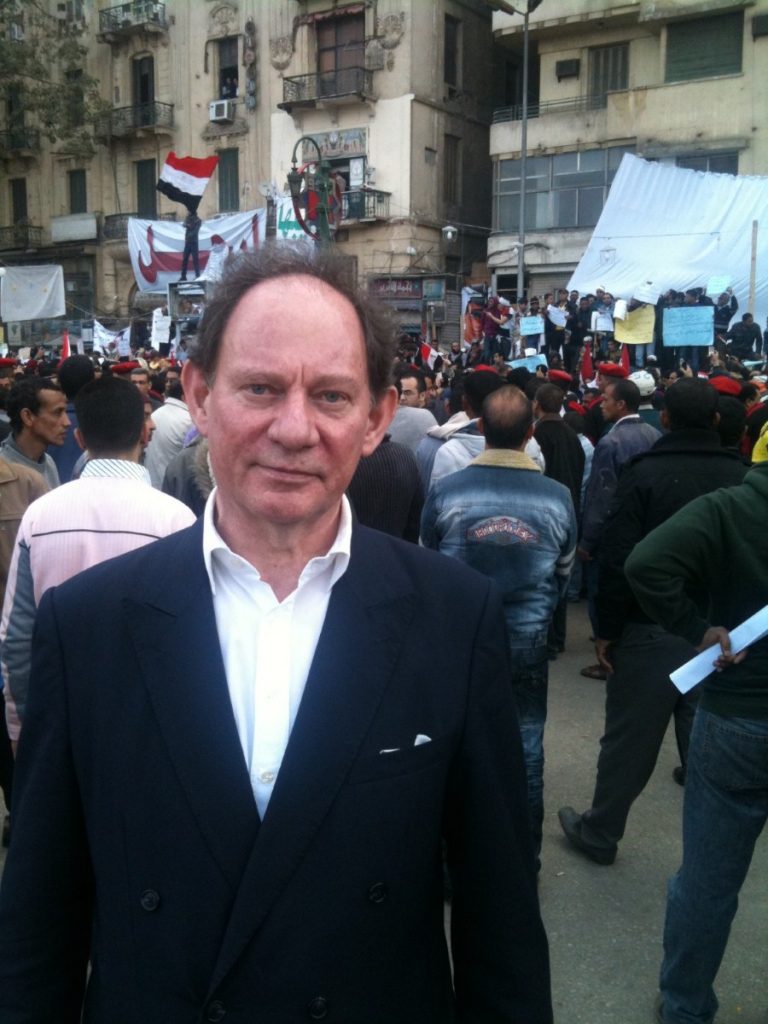Comment: The fading spirit of the Arab Spring
The first outside politician to reach post-Mubarak Egypt gives his appraisal of the revolution, one year on.
By Edward McMillan-Scott
I was fortunate to get to Cairo the day after Hosni Mubarak fell, almost one year ago today. I was the first outside politician to greet the leaders of the revolution as Egypt exulted in a new dawn. I have been back to the region six times since then, encouraging reformists, but each time discovering that the spirit of the Arab Spring is fading.
True, the junta has overseen the first free and fair elections to the parliament. These resulted in some 70% of the MPs representing the Muslim Brotherhood or the more ultra-orthodox Salafist tendency.


How these MPs, housed in their Victorian buildings where colonial Britain tried to encourage Westminster-style politics, will respond to the spirit of nearby Tahrir Square is not yet clear. There have been demonstrations already by young reformists outside the parliament, which is now protected – symbolically – by the military regime.
Early on, the junta invited the Muslim Brotherhood onto its consultative panel while it ignored other key parts of Egypt's civil society, notably women, or the Christian Copts, who make up some ten per cent of Egypt's population. There are good reasons to believe that the regime has organised violence against both women and Copts, leading to many deaths, to strengthen its position as guardian of law and order.
The 20-member Supreme Council of the Armed Forces (Scaf), which first met the day before Mubarak fell, has also promised presidential elections this summer. The leading contenders were the former secretary of the Arab League, Amr Moussa and Mohammed el Baradei, former head of the International Atomic Energy Agency.
El Baradei, who won the Nobel Peace Prize in 2005, withdrew his candidacy in January, saying he had taken his decision in protest at the way Egypt's military rulers governed "as though no revolution had taken place". Amr Moussa, a former foreign minister whom I have met many times, is the likely winner and he will protect the commercial interests and privileges of the military while moving reform forward.
The only female contender so far declared, Bothaina Kamel, who visited the European parliament in December, told me "the army is killing the revolution". On her return to Cairo she was beaten up and detained by the security forces. On the anniversary of the start of the revolution, January 25th, she asked revolutionary youth movements and coalitions to "protect the square", as the symbol and heart of the revolution.
The Scaf has arrested some 12,000 people since last year and processed them into prison through military tribunals. I once visited Tora prison outside Cairo – where many political prisoners are held – to try to see my friend Dr Ayman Nour, leader of El Ghad ('The Future') Egypt's first secular liberal party. In January 2005 he lost his parliamentary immunity and was imprisoned on trumped-up charges of falsifying party membership forms.
I confronted the then Speaker of the Egyptian parliament, Dr Fathi Sourour, in a televised meeting in Cairo and within three hours Nour was freed.
Nour was imprisoned again by the regime for over three years and has now been banned from standing as a presidential candidate by the Scaf. Dr Sourour is now in the same prison, indeed the same cell, that Ayman occupied. Sourour is another symbolic victim of Scaf's cynical purge of the Mubarak old guard. Ironically, I may now find myself campaigning for due process for him too.
Egypt is incomparably the most important country in Africa and the Middle East, with a population of 70 million and a relatively well-developed economy. It has played a positive role in past negotiations between Palestine and Israel. It has enjoyed good relations with Washington, but the recent harassment of American and European NGOs working for reform in Egypt has put that under strain.
The international community – except China and Russia – recognise that the revolutions in Egypt, Libya and Tunisia will continue to need intensive care. The spirit of freedom cannot be crushed in Bahrain, Syria and Yemen and I believe that Europe should be using every means to support the revolutions there, short of military involvement.
Edward McMillan-Scott MEP (Yorkshire & Humber, Liberal Democrat) is vice-president of the European Parliament for Democracy and Human Rights.
The opinions in politics.co.uk's Comment and Analysis section are those of the author and are no reflection of the views of the website or its owners.

